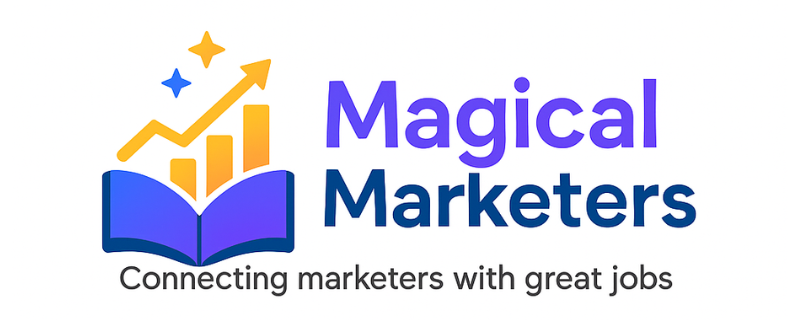How to Rank on ChatGPT and Other AI Tools: A Comprehensive Guide

In recent years, the landscape of online information retrieval has undergone a major transformation. While Google remains the dominant search engine, the rise of AI tools like ChatGPT has introduced a seismic shift in how people find information. As AI becomes an integral part of the digital experience, it is crucial for businesses, content creators, and digital marketers to understand how AI tools like ChatGPT process information and how to optimise content for ranking on these platforms. This article will delve into how you can rank on ChatGPT and other AI tools, covering everything from the basics of AI search to specific optimisation strategies.
The Rise of AI Tools and Their Impact on Online Search
AI tools like ChatGPT are growing in popularity, with user numbers exceeding 1.5 billion by early 2024. Unlike traditional search engines like Google, which direct users to webpages, AI-powered tools like ChatGPT aim to provide direct answers to user queries. This fundamental difference in user intent changes how content should be structured and delivered.
Google operates by crawling websites, ranking pages, and then pointing users to the most relevant results. On the other hand, ChatGPT and similar AI models retrieve information from a vast knowledge base and synthesise it into a direct, conversational response. The focus is not on presenting a webpage, but rather on providing an answer that is both relevant and helpful.
Understanding How AI Tools Like ChatGPT Work
To effectively optimise content for ChatGPT, it’s important to understand how these tools work. Large Language Models (LLMs) like ChatGPT don’t simply search the web for information. Instead, they rely on a sophisticated pattern-matching system, which helps them retrieve and synthesise information from their training data.
When a user inputs a query, ChatGPT processes the request in the following way:
- Intent and Context Analysis: The AI first tries to understand the user’s query by analysing its intent and context.
- Retrieval of Information: It then searches its extensive knowledge base for relevant data.
- Synthesis of Response: Using its language model, ChatGPT generates a response by synthesising information from various sources, combining them in a human-like conversational manner.
- Delivery of the Answer: The final output is an answer designed to be helpful, accurate, and relevant to the user’s question.
Unlike traditional search engines, which just point to the most relevant web pages, ChatGPT provides an answer directly. This means that to rank well on ChatGPT, your content must be not just visible but also structured and presented in a way that allows the AI to pull relevant and valuable information.
Key Factors to Optimise for AI Search
Ranking on ChatGPT and other AI tools is not just about traditional SEO tactics. While factors like keyword usage, backlinks, and website authority still play a role, AI search engines require a more nuanced approach. Here are the key factors that can help optimise your content for AI search:
Experience, Expertise, Authoritativeness, and Trustworthiness (EEAT)
EEAT is a framework that is central to both traditional search engines like Google and AI tools like ChatGPT. To rank well, your content needs to demonstrate:
- Experience: Your content should reflect practical knowledge and first-hand experience with the topic at hand.
- Expertise: The information should be accurate, insightful, and backed by a deep understanding of the subject.
- Authoritativeness: Your content should come from a trusted source, and it should be clear that you are a recognised authority in your field.
- Trustworthiness: The information you provide should be reliable, well-researched, and free from errors.
AI models assess content based on these factors, and content that excels in EEAT is more likely to be referenced by AI in response to user queries.
Content Depth and Structure
AI tools prefer in-depth, well-structured content that covers a topic comprehensively. Longer articles or blog posts that explore a subject from multiple angles are more likely to rank higher. This is because AI models, especially ChatGPT, rely on natural language processing (NLP) to understand the context and nuances of the content. The more detail and context you provide, the better the chances that your content will be recognised as valuable and relevant.
One of the best ways to structure content for AI tools is by using FAQs and structured data. This format makes it easier for AI tools to scan and understand your content, increasing the likelihood that it will be used in generating responses.
Conversational Tone and Voice Search Optimisation
Another important aspect of AI optimisation is understanding the shift towards voice search and conversational language. With the increasing use of voice assistants, users tend to ask more natural, full-sentence questions rather than searching with short, concise keywords. This trend is even more pronounced with AI tools like ChatGPT, which are designed to answer questions in a conversational tone.
For example, rather than optimising for a keyword like “how to rank on ChatGPT,” you may want to optimise for longer, more conversational phrases such as “What are the best ways to rank on ChatGPT?” or “How can I improve my visibility on ChatGPT?”
To rank well with AI tools, you must adapt your content to match the way people naturally speak. Focus on using long-tail keywords and conversational phrases that align with how users interact with AI systems.
AI-Friendly Content Formats
Certain content formats are more AI-friendly than others. For example, structured data such as bullet points, numbered lists, and headings make it easier for AI tools to understand and process your content. Including an FAQ section can also be beneficial, as it allows AI to retrieve answers to common questions quickly.
Another effective approach is to create long-form content that dives deep into a topic. AI tools like ChatGPT tend to favour longer, more comprehensive articles that cover a subject in detail. These types of articles provide more context, which helps AI models synthesise more accurate and reliable responses.
Staying Updated on AI Trends
As AI tools like ChatGPT evolve, it is essential to stay updated on the latest trends and algorithm changes. One way to do this is by using AI-powered analytics tools to track how your content is performing in AI-driven searches. This data can give you insights into how your content is being used, which will allow you to refine your approach and optimise further.
Building Links and Backlinks
While traditional SEO still focuses on backlinks, AI tools evaluate content differently. However, having authoritative backlinks can still improve the trustworthiness and authority of your content. By earning backlinks from high-authority sites in your industry, you signal to both search engines and AI tools that your content is credible and reliable.
Backlinks alone won’t guarantee a high ranking, but they do add to the overall authority of your content, which AI tools will recognise.
Why AI Search Is the Future of Online Discovery
The shift towards AI-powered search is inevitable. While traditional SEO is still relevant, optimising for AI tools like ChatGPT is essential for staying ahead in today’s digital landscape. AI models do not just retrieve information from web pages—they synthesise content, provide direct answers, and offer personalised, conversational experiences to users.
For businesses and content creators, this means that your content needs to be not just visible, but authoritative, conversational, and valuable enough to be referenced by AI tools. The future of search is about providing direct, well-structured, and high-quality answers that can be easily processed by AI.
Final Thoughts
As AI tools like ChatGPT continue to evolve, they are reshaping how content is discovered online. To rank on ChatGPT and other AI platforms, content creators must adapt their strategies by focusing on experience, expertise, authoritativeness, and trustworthiness. The key lies in creating high-quality, in-depth content that is well-structured and conversational. Optimising for voice search, staying updated on AI trends, and using AI-friendly content formats are also crucial for achieving visibility in AI-powered search.
Calling all Marketers!
🔴 Are you tired of searching for the perfect job?
Whether you're into content writing, SEO, social media, graphic design, or video editing—full-time, freelance, remote, or onsite—we've got your back!
👉 We post over 30 job opportunities every single day. Yes, every day (all verified).
Join the most reliable and fastest-growing community out there! ❤️
And guess what? It’s FREE 🤑
✅ Join our WhatsApp Group (Click Here) and Telegram Channel (Click Here) today for instant updates.







